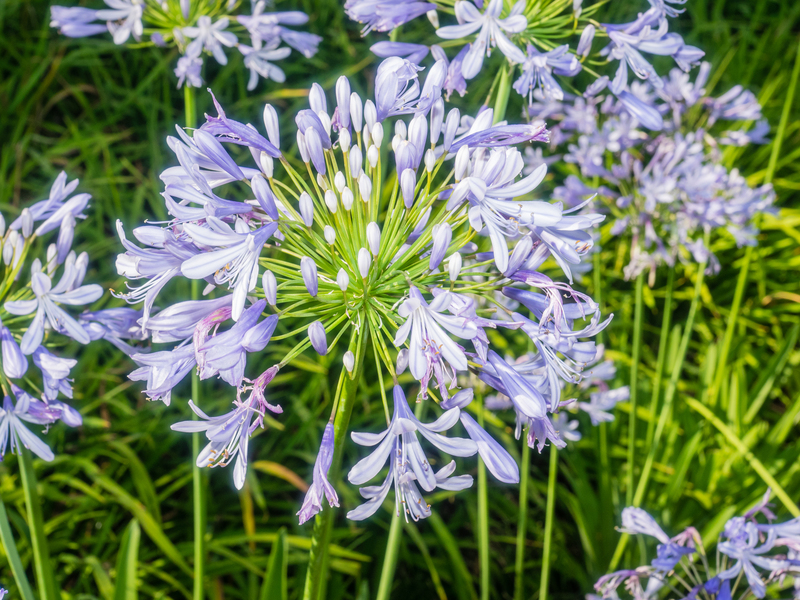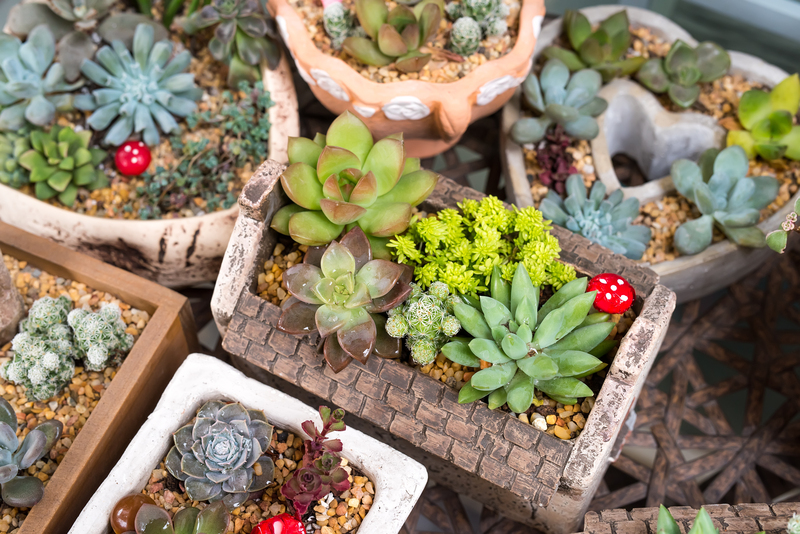The Top 10 Evergreen Trees That Won't Outgrow Your Small Garden
Are you dreaming of a year-round lush, green garden but worried that towering trees will overwhelm your cozy outdoor space? Evergreen trees provide color, texture, and structure in all four seasons, but many homeowners hesitate to plant them in small gardens due to concerns about excessive growth. The good news is that there's a wide range of compact evergreen varieties perfectly suited for small gardens, patios, and urban yards. In this comprehensive guide, we'll unveil the top 10 best evergreen trees for small gardens, ensuring lasting beauty without the fear of overgrowth.
Why Choose Evergreen Trees for a Small Garden?
Evergreen trees are prized for their ability to keep their leaves or needles year-round, offering constant color, privacy, and a backbone to your landscape. For small gardens, selecting the right species is crucial to:
- Maintain proportion - Preventing the tree from overwhelming your space or blocking valuable sunlight.
- Establish privacy - Creating green screens or boundary hedges without turning your garden into a forest.
- Create focal points - Adding visual interest and structure to your landscape design.
- Encourage wildlife - Offering shelter for birds and insects even through winter.
- Reduce maintenance - Minimizing pruning and root spread to avoid damage to property or neighboring plants.
Ready to explore the best compact evergreen trees for your garden? Let's dive into this curated top 10 list that will transform your outdoor space into a year-round oasis.

The Top 10 Compact Evergreen Trees for Small Gardens
-
Dwarf Alberta Spruce (Picea glauca 'Conica')
The Dwarf Alberta Spruce tops the list for one important reason: its perfectly conical shape and slow, gentle growth. Rarely exceeding 8-10 feet high and 3-4 feet wide even after many years, this evergreen conifer is ideal for framing entryways, container planting, or anchoring mixed borders.
- Growth Rate: Very slow (2-4 inches per year)
- Sun Requirements: Full sun to partial shade
- Soil: Well-drained, acidic to neutral
Tip: Plant in a spot with good airflow to prevent spider mite infestations.
-
Japanese Holly (Ilex crenata)
If you love the look of boxwood but want a hardier evergreen shrub or small tree, try Japanese Holly. Its small, glossy leaves and neat growth make it popular for hedging or as a landscape specimen.
- Mature Size: 4-8 feet tall, 4-6 feet wide
- Special Features: Tolerates pruning for a tailored look
- Hardiness: Zones 6-8
Japanese Holly adapts well to pots or as a low green screen in tight spaces.
-
Bay Laurel (Laurus nobilis)
Not only does Bay Laurel add a Mediterranean feel to your small garden, but its aromatic leaves are also a chef's delight. This slow grower can be shaped as a small tree or shrub and is perfect for containers or raised beds.
- Growth Rate: Moderate
- Max Height (in pot): 6-8 feet
- Best For: Ornamental & culinary use
Bay Laurel tolerates hard pruning, so you can easily keep it compact and stylish.
-
Sky Pencil Holly (Ilex crenata 'Sky Pencil')
This columnar form of Japanese holly is unrivaled for adding vertical accents to tight spaces. Its upright, narrow habit makes it one of the best pencil evergreen trees for modern or formal gardens.
- Growth Habit: Narrow, vertical (up to 8 feet tall, 2 feet wide)
- Sun: Full to partial
Sky Pencil Holly is ideal for flanking doorways, lining small paths, or using in large planters.
-
Dwarf Southern Magnolia (Magnolia grandiflora 'Little Gem')
Classic Southern Magnolia trees are known for their beauty, but their size can be daunting in a small yard. The 'Little Gem' variety offers glossy, evergreen leaves and fragrant, creamy blooms in a petite package.
- Mature Height: 15-20 feet (can be kept smaller with pruning)
- Width: 7-10 feet
- Blooms: Spring through summer
Little Gem Magnolia is a beautiful small garden centerpiece that won't overwhelm your space.
-
Portuguese Laurel (Prunus lusitanica)
The Portuguese Laurel is a superb choice for evergreen privacy screens in modest gardens. Its shiny, dark leaves grow densely, but the tree itself remains naturally compact and easily pruned.
- Typical Size: 10-18 feet tall (responds well to annual trimming)
- Sun Exposure: Full sun to partial shade
Note: Avoid overwatering and plant in well-drained soil for a healthy, happy tree.
-
Kousa Dogwood (Cornus kousa 'Beni Fuji')
Although technically a deciduous tree, the Kousa Dogwood 'Beni Fuji' offers semi-evergreen qualities in milder climates and beautiful structure year-round. In small gardens, it balances height and breadth with striking foliage and blossom displays.
- Height: 8-10 feet
- Width: 6-8 feet
- Features: Breathtaking blooms in spring, colorful fall foliage
This dogwood brings lasting interest and can thrive even in partial shade.
-
Blue Spruce 'Fat Albert' (Picea pungens 'Fat Albert')
If you want a bushy, blue-hued tree with predictable size, 'Fat Albert' Blue Spruce is a winner. Its broad, symmetrical shape and dense needles give a bold presence without dominating your small yard.
- Growth Rate: Slow to moderate
- Height: 12-15 feet in 10 years, rarely exceeds 20 feet
- Width: 6-8 feet
Tip: Plant as a specimen or anchor for mixed conifer groupings.
-
Mugo Pine (Pinus mugo)
The tidy Mugo Pine is beloved for rock gardens and foundations. Its dwarfed cultivars--such as 'Mops' and 'Slowmound'--stay petite, ensuring they remain perfect for small spaces.
- Height: 3-8 feet depending on variety
- Spread: Up to 10 feet but can be pruned
- Sun: Full sun
Mugo Pines thrive on neglect and are extremely drought-tolerant once established.
-
Irish Yew (Taxus baccata 'Fastigiata')
For timeless elegance, Irish Yew stands out among narrow evergreen trees. Upright, columnar, and densely packed with deep green needles, it's a brilliant addition to narrow beds or as a classic accent flanking pathways.
- Height: 8-15 feet
- Width: 2-4 feet
- Maintenance: Tolerates clipping for shape
*Note: Yews are toxic if ingested. Exercise caution with pets and children.
How to Choose the Right Evergreen Tree for Your Small Yard
Before planting, consider the following key factors to ensure your chosen small evergreen tree will thrive and stay appropriately sized for your space:
- Maximum Mature Size - Research the maximum height and spread even for dwarf varieties. Check whether the tree's roots will disrupt surrounding structures or plantings.
- Growth Rate - Slow growers are best for low maintenance and controlling size. Fast growers may require annual trimming.
- Climate and Hardiness - Confirm that your choice suits your garden's climate (USDA Plant Hardiness Zone).
- Sun and Soil Requirements - Match the tree's needs to your garden's environment - heavy shade or dry soil can limit your selection.
- Desired Garden Use - Do you want a formal clipped hedge, a specimen, wildlife haven, or a structural feature?
Tip: Many evergreens, especially in containers, can be regularly pruned to keep them even smaller than the listed mature size.
Benefits of Planting Compact Evergreen Trees in Small Gardens
- Year-round interest - Provides color, shelter, and privacy through all seasons.
- Low maintenance - Dwarf and slow-growing species require little pruning or cleanup.
- Versatile landscaping - Perfect for hedges, pots, boundaries, or as unique garden features.
- Increased property value - Polished landscapes create curb appeal and interest.
- Wildlife support - Birds, pollinators, and garden beneficials appreciate shelter and food from evergreens.
Tips for Maintaining Small Evergreen Trees in Limited Spaces
- Regular Pruning - Shape the tree annually to encourage dense growth and control size.
- Container Growing - Most dwarf evergreens remain more compact in pots and can be moved to suit seasonal design changes.
- Mulching - Use mulch to retain moisture and suppress weeds at the base of your trees.
- Avoid Overfertilizing - Excess fertilizer can spur unwanted growth. Use slow-release feed tailored to your species.
- Monitor Pests & Disease - Keep an eye out for common issues such as scale, spider mites, or root rot.

Frequently Asked Questions About Compact Evergreen Trees
Are there truly evergreen trees that stay small forever?
Most dwarf evergreens are bred or selected for their very slow and compact growth. While all trees grow, species like Dwarf Alberta Spruce, Mugo Pine, or Sky Pencil Holly are unlikely to ever overwhelm a small garden, especially with light annual pruning.
Can you keep evergreen trees even smaller by growing them in pots?
Absolutely! Many compact evergreen trees thrive in containers and will stay smaller than their in-ground counterparts. Container growing restricts root space, naturally limiting overall size.
What's the best way to use evergreen trees in a tight garden landscape?
- As specimen plants - Create a focal point with striking color or form.
- As privacy screens - Plant closely for a neat, year-round green boundary.
- For vertical accents - Use columnar types to draw the eye upward without sacrificing space.
How often do compact evergreen trees need to be pruned?
Pruning requirements vary by species and desired shape. Most dwarf evergreens only need a light trim once per year, preferably in late winter or early spring, to maintain density and shape.
Are small evergreens resistant to drought or pests?
Some, like Mugo Pine and Blue Spruce, are very drought tolerant once established. Always choose varieties adapted to your local climate and inspect regularly for common garden pests.
Conclusion: Small Spaces, Big Impact with Evergreens
With thoughtful selection and placement, small evergreen trees can provide year-round beauty without outgrowing their welcome in your garden. Options like Dwarf Alberta Spruce, Sky Pencil Holly, Mugo Pine, and Portuguese Laurel offer lasting structure and interest for courtyards, patios, and compact landscapes.
Remember to always consider sun, soil, and water requirements, and don't hesitate to incorporate evergreens into containers for extra flexibility. With the right care and planning, your small garden can be lush, lively, and ever-green for many years to come.
Are you ready to transform your little outdoor retreat? Experiment with these top evergreen trees for small gardens and enjoy the beauty, privacy, and serenity they bring!